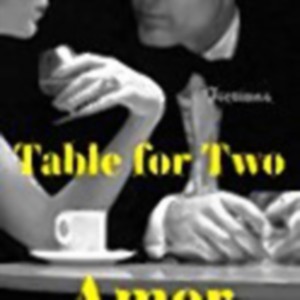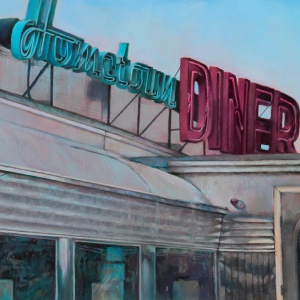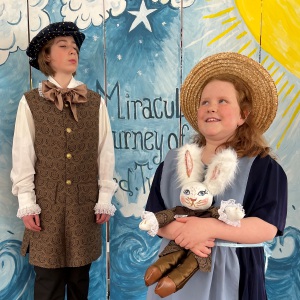The Avid Reader: Poetry that makes your hair stand on end
| Published: 09-30-2021 9:29 AM |
William Shakespeare’s Hamlet (1603) contains a lovely sentence: “I could a tale unfold, whose lightest word would harrow up thy soul, freeze thy young blood, make thy two eyes, like stars, start from their spheres, thy knotted and combined locks to part and each particular hair to stand an end, like quills upon the fretful porpentine.” “Porpentine” is how Shakespeare spelled “porcupine” by the way. Pretty vivid in my estimation, and that mental image of me looking like a fretful porcupine is one that I get every time I read a beautiful poem. So, where can I find those poems and once again become that porcupine?
Saturday morning, 9:30, local book fair. I could not miss an opportunity to peruse the newest poetry publications by Monadnock-area authors. I really wanted to investigate some hair-standing work that I knew would be contained in those slim volumes of delicious reads.
My first stop was at the table of Meg Kearney. If you have been reading this column, you know I am an ardent fan of Kearney and I frequently turn to her poems for an exciting afternoon of reading. She certainly does not disappoint with her newest volume, “All Morning the Crows.”
This particular book has won the 2020 Washington Prize and it is certainly well deserved. At the end of her book, Kearney cites the sources and inspirations for her poems. Authors such as Roger Tory Peterson (“Field Guide to Birds of Eastern and Central North America”) and Diana Wells (“100 Birds and How They Got Their Names”), as well as the Cornell Lab of Ornithology contributed kernels of ideas for Kearney’s brilliant imagery.
Humans and birds. We are really more closely aligned than most people imagine, and when Kearney uses these avian images as a metaphor for her own emerging self-awareness and growth, a powerful melding indeed occurs.
Personal growth happens not only with success but after failure, loss, and trauma – both individual as well as societal. It has been twenty years since the Towers fell and finally Kearney has been able to address that pain, with a brilliance that will make any reader’s hair stand on end.
But, this is not just a book to tantalize our more easily-heartbroken senses. No. There is humor and laughter, and the vindication of a group of powerless female waitstaff who finally saw their nasty, tip-skimming boss get his comeuppance. I cheered those girls and the kitchen chef who brought him down. Every poem in Kearney’s book is like this. We cheer, cry, rage, but always love her beautiful work. Yes, another wonderful Kearney contribution to my porcupine reading.
Sitting right next to Kearney was Alice B. Fogel. This woman’s poetry has always been trouble (in the best way possible!), so I expected nothing less from her newest work “Nothing But.” Fogel again pushes us to our limits with provocative images and unsettling ideas, forcing her readers to ask internal questions and confront neoteric ideas, all while feeling our hair stand on end.
Article continues after...
Yesterday's Most Read Articles
This time Fogel, a past New Hampshire Poet Laureate (2014-2019) by the way, looks to abstract art for her source of inspiration. For many, nonrepresentational images present a form of expression that eludes an ability to describe, understand, or even appreciate. Yet, most everyone will certainly hold an opinion!
With skill, passion, and the ability to instruct, Fogel brings these paintings to life in ways that have not yet been imagined. Her seeing the nonconcrete world of abstract art means we can envision those works just by reading her poems. As a reader, I want to think about her impressions and appreciate her vision from an emotional, word-centered perspective.
As Fogel writes at the beginning of her poem “Rations” inspired by Judith Lindbloom’s painting of the same name: “every time our predilection for thinking thinks it would stay the same one thing is how much it doesn’t or we don’t.”
Let that be a lesson to us – read, think, shift perspective, push new ideas, and put a hat over your hair standing on end if you read this book in a public place.
The third table I visited, right next to Kearney and Fogel, was that of Jimmy Pappas. He is active in the Poetry Society of New Hampshire (full disclosure: I let my membership lapse and I regret it), and the author of a new work: “Falling off the Empire State Building.” Some of these poems have been individually published in various journals, but this book is the first time they are all in one place and easily accessible to readers. That was a very good idea.
I had the opportunity to talk with Pappas and one of the most poignant statements he made was, “I wrote a poem, I cried, I kept on writing.” Buying the book, I could not figure out how tears were provoked by the title referencing the Empire State Building! Then I read the book. This is an intimate, soul-bearing revelation of one man confronting some of the deepest pains in his life.
Pappas uses simple words, short phrases, and tight writing to express his thoughts. There are no soft words, pretty flowers, or gloss-overs. Rather, readers are hit with an opening of feelings that, by the way they are written, makes us know they came out hard. When I finished this book, I knew that Pappas didn’t want to write these poems, but they made him. A weaker man would have suppressed them, done anything to not let people see his exposed core. Instead, I suspect that he took a deep breath, put pen to paper, and let the poems say their words – tell their story. This is not an easy book, either for Pappas or for his readers. It is, however, a strong one. Read it if you dare.
My hair has been on end all weekend. I am now going to wash it thoroughly, comb it into some semblance of order and submission, get a cup of tea, and try to calm down with some lovely murder mysteries. The results will be reported on in future columns.

 Jaffrey kicks off Earth Week with no-waste potluck and environmental speakers
Jaffrey kicks off Earth Week with no-waste potluck and environmental speakers Gnome Notes: Emerson Sistare – Amor Towles weaves tapestry in ‘Table for Two: Fictions’
Gnome Notes: Emerson Sistare – Amor Towles weaves tapestry in ‘Table for Two: Fictions’ Jaffrey Civic Center hosting Heart of the Arts
Jaffrey Civic Center hosting Heart of the Arts  Project Shakespeare to present ‘The Miraculous Journey of Edward Tulane’
Project Shakespeare to present ‘The Miraculous Journey of Edward Tulane’
